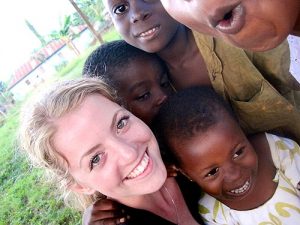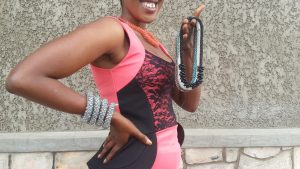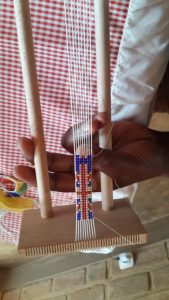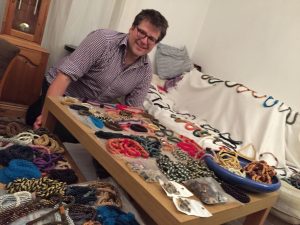
How market research is working to the benefit of Rwandan survivors.
WHY?
The key challenge for all seeking to build a better world is connecting the decent intentions of those who to seek to help with the realities of life on the ground. How do we ensure genuine needs are targeted, and in the most effective way possible? Especially where resources are limited and/or there are limitless calls upon the resources.
Take Rwanda, where the horrendous consequences of the 1994 genocide live on: traumatised widows, many deliberately infected with HIV; child-headed households where the lead sibling foregoes education while other siblings struggle due to trauma or lack of resources; and graduates who emerge in a developing country with no job or business knowhow. Programmes must be, and are, developed to assist but how to ensure money is being spent where it can achieve most impact?
The answer lies in part with market research, as shown by the success of Survivors’ Fund SURF, the charity fundraising for, and supporting the survivors of, the Rwandan genocide. Monitoring and Evaluation has been the growing focus of Non-Governmental Organisations and donor Governments, in assessing whether outputs of aid programmes are achieved, and how much these contribute to the desired outcome. Crucially, such drives further investment by donors delighted with certainty of what is being achieved. Research-powered M & E has been a key element in the projects SURF has implemented with long-time partner Comic Relief, including a £1 million home-building scheme providing shelter for over 1,800 widows and children. M & E also drove the UK Department for International Development to grant £4.25 million for five years of antiretroviral treatment for 2,500 HIV+ survivors.
Market research’s scope goes beyond assessment and evaluation to guiding powerful new initiatives. Most recently, research (in this case by Kantar TNS) has enabled and driven the establishment of a cooperative of widowed genocide survivors making hand-making jewellery.
HOW?
Much of SURF’s work is in funding and overseeing individual survivors’ organisations who are delivering programmes (e.g. AVEGA the widows’ organisation, AERG the 43,000 strong student survivors’ organisation, etc). As such SURF conducts impartial Monitoring & Evaluation. Increasing deployment of mobile data collection has dramatically improved the efficiency and the accuracy of such activities. Knowing that the data has such accuracy is a real strength in advocating for the causes, and for obtaining funding.
Research was deployed as part of ELE (Empowering Vulnerable Young Survivors who have left Secondary School to Create, Secure and Sustain Employment) which is enhancing the livelihoods of 946 vulnerable young people in Rwanda and their 3,200 dependents, through entrepreneurship training and access to capital plus support to enforce their legal rights and address their trauma. Mobile data collection was used to survey over 800 young survivors who had dropped out or left secondary school enabling accurate assessment of extreme poverty, trauma, and disputes over land stolen from their families. Advocacy driven by this information resulted in provision of resources by Government.
Meanwhile, in 2012 the student survivors organisation AERG commissioned research on young survivors and discovered that homelessness, trauma, and legal issues were interlinked. Over 77% still suffered from trauma or depression, with over 55% of young survivors having legal cases: i.e. where property which should rightfully be theirs e.g. the house they lived in before the genocide, has been stolen, often by distant family members. The research focused principally on mental health, using qualitative and quantitative methods, via “Beck Depression inventory (BDI), Post Traumatic Stress Disorder (PTSD)” tests, interviews and observations, addressed to young survivors of the genocide. Responses and views were obtained from 213 respondents, found at their respective schools and resident districts across the country. 88% of respondents were found with PTSD and 77% to be suffering depression. Hereby, researchers confirmed the strong relationship between legal issues, homelessness and trauma. SURF and AERG used this data to advocate for young survivors, obtaining funding for the first ever Legal and Counselling Helpline for survivors so they can access legal and mental health support regardless of location.
Finally, the widows’ organisation, AVEGA, conducted Monitoring & Evaluation in conjunction with SURF to document the challenges faced by elderly widows, as well as the impact income-generating training and counselling can have on livelihoods and well-being among female genocide survivors.
WHAT?
The ELE Monitoring & Evaluation has shown dramatic impacts with 57% of beneficiaries running businesses as opposed to just 19% at the start; meanwhile 94% have increased their incomes, trauma symptoms among beneficiaries being reduced from 45% to 24%, and 292 individuals are actively enforcing their legal rights. Savings groups continue to meet weekly to accumulate savings, enhance collective financial security, and provide social support to one another as they develop and strengthen income generating businesses.

Fig. 1: Kelsey Finnegan, SURF Programme Manager, with some of the ELE dependants
Meanwhile, the statistics emerging from evaluation of the AERG Legal Helpline project are astonishing – since its inception in 2013, the helpline has reached over 37,000 people. Moreover the total estimated land value of resolved cases stands at over $600,000 US Dollars to date (475,600,000 Rwandan Francs). Furthermore, the helpline has grown from a small pilot telephone based service to a unique all-encompassing legal and counselling support service with field staff supporting clients through legal education and orientation, advocacy and representation in court.
Finally, as regards the AVEGA widows’ organisation, the evidence of SURF’s Monitoring & Evaluation programmes is that women who are engaged in income-generating activities are less likely to have recurring PTSD, and their trauma is reduced. These proof points have enabled SURF to obtain donor funding totalling over 1.5 million dollars for such programmes, supporting over 23,000 women to access income generating training, counselling and legal support, and start small businesses to support themselves and their families.
Further, research has aided in the establishment of a specific widows’ cooperative producing beautiful handmade jewellery.

Fig. 2: Examples of the handmade beaded jewellery created by the widows’ cooperative
In this case qualitative research was conducted in the United Kingdom to understand jewellery buyers’ tastes, the better for the widows’ cooperative to refine their products to sell in the UK market. As a result, the website www.rwandanbeauty.com has been launched offering beautiful products tailored to the UK market, and creating livelihoods for widows to aid them in overcoming their trauma.

Fig. 3: Beatha makes a Union Jack bracelet

Fig. 4: Ruing volunteering to add so many new SKUs to www.rwandanbeauty.com !
This research showing the added value of market research for our society, was conducted by Kelsey Finnegan, Project Coordinator, SURF Survivors Fund, Rwanda and Will Goodhand, Innovation Director, Kantar TNS UK.
